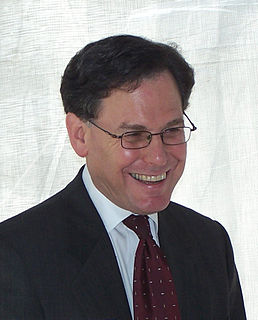Top 36 Quotes & Sayings by Sidney Blumenthal
Explore popular quotes and sayings by an American journalist Sidney Blumenthal.
Last updated on April 15, 2025.
Who was it in Afghanistan who screwed up in Tora Bora and let bin Laden escape? It was the Bush Administration. Who leached all the resources, military and civil, from Afghanistan, creating the instability that we see there today in order to prepare for the misbegotten invasion of Iraq? It was the Bush administration. If there's a terrorist problem today, who is responsible now? Bush has not done the job.
I call George W. Bush a radical because he is undertaking a fundamental transformation of our Constitutional system of government and of our longstanding policies that have been accepted for literally generations. He thinks to concentrate unaccountable power in the Executive. He thinks you alter the laws so that, as Commander in Chief, he can determine, under what he says are wartime conditions, what the laws are, which laws should be enforced, and declare by fiat what our policy should be, even abrogating longstanding international treaties.
When most people see the word "radical," they think that it must refer to something left wing. Some people also may think of it as referring to far right-wing marginal groups. But here we have a president of the United States [George W. Bush] at the center of power, sitting in the White House, who is a radical.
In every single case, the truth is that the atmosphere created by the Iraq invasion and the staggeringly mismanaged occupation has incited terrorists to act. It's been a contributing factor. It's unavoidable throughout Europe - in Spain, in Germany, in Britain. The truth is that we need long-term American policy to shift in order to really soak up and get rid of these sources of terrorism that threaten our Western allies.
In a sense, George W. Bush has used the tragedy of the terrorist attacks of September 11th and the nightmarish expansion of his idea of a war on terror to overshadow his actual conduct in office on the redistribution of wealth upward through progressive tax cuts that actually penalize the vast majority of the public, and shift their resources to a narrow band at the very, very top.
The Bush Administration, and particularly Bush's chief political strategist and Deputy Chief of Staff, Karl Rove, have been expert in both galvanizing and mobilizing the fears and resentments of people. A good part of their politics consists of being against others who are defined in stereotypical terms. These others don't, in actual reality, exist. The so-called Democratic elitists, for example, are a stereotype who they can hate. Anyone who watches Fox News or listens to Rush Limbaugh knows that this hatred of the other is at the core of their politics.

















